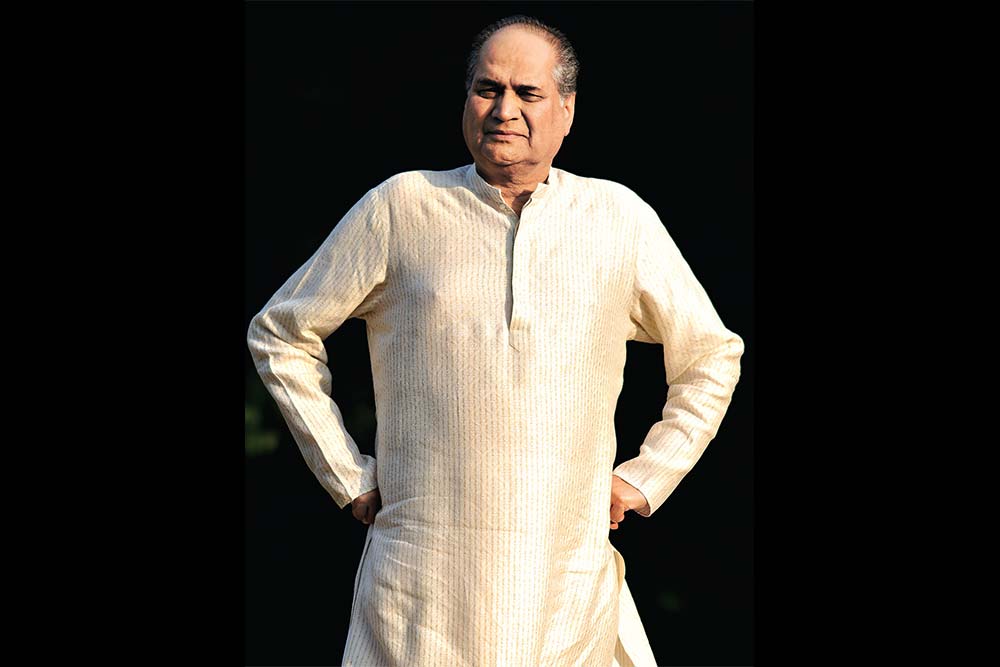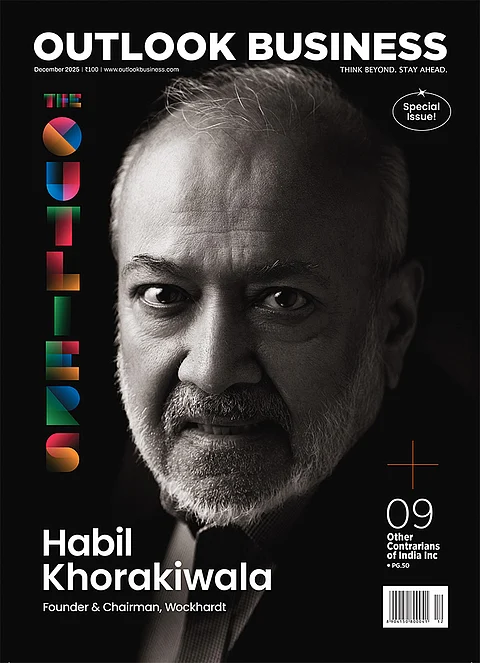Rahul Bajaj, chairman, Bajaj Auto
Let me tell you what the government needs to do, particularly the Central government. We are a federal structure and just the Central government by itself cannot solve all the problems but I don’t think we have the time to talk of state governments, municipal corporations or the gram panchayats.
Coming back to the Central government, I am sorry to say that all the major political parties appear to behave like schoolchildren. The Congress and its allies, the BJP and its allies — nobody can see eye to eye with anybody. There are, of course, ideological differences also when it comes to the Left. But the UPA and NDA should agree on certain economic and governance policies that are good for the country.
There will be issues on which the Congress and the BJP cannot agree. This is understandable. They are, after all, two separate parties in a democracy. So every five years, or whenever the elections take place, they can fight each other.
The NDA and UPA together have a majority in the Lok Sabha and in the Rajya Sabha. Today, the UPA does not have a majority in the Rajya Sabha on its own, but with the BJP on board it can pass all the Bills without a problem. There are about 30 Bills pending today in the Lok Sabha, and I believe 20 more Bills need to be introduced, taking the total number of Bills that need to be passed to over 50. In the last 12 months, nothing was done. In the 2010 winter session, no Bill was passed. The Budget session essentially passed the Budget and its related Bills.
Coming back to what the government needs to do, in two words, we need ‘Good Governance’. And for this, we need at least 70-80% of these 50 Bills to be passed as soon as possible.
Then, there must be electoral reforms, apart from the Bills in Parliament for economic and social matters. The UPA and NDA should come together for electoral reforms. Criminals should not come into Parliament. Reforms like state funding of elections should be introduced.
Also, the Parliament and Assembly elections should be held simultaneously, that is, there should be no mid-term polls.
Apart from inadequate infrastructure, the two major problems India is facing are poverty and income inequality. Though some political parties on the Left may disagree, I believe that to reduce poverty and inequality, the first pre-requisite is growth.
Unless India has at least 9% GDP growth per annum, poverty cannot be reduced. Giving ₹120 per day for 200 days a year doesn’t solve the long term problem. It’s not, by and large, productive employment.
The poor who take advantage of NREGS cannot be expected to travel 20 km or more for work. If millions of people have to be given jobs wherever they live, it’s not much better than digging a well and filling it up, which will take the country to bankruptcy. Some roads are laid under the NREGS, that too with complete inefficiency and corruption.
With growth in industry, services and agriculture, gainful employment can be generated. That helps growth and it comes from growth. It is the cause and the effect. I think there is no better way to reduce income inequality on a sustainable basis.
Prahlad Kakkar, Ad Guru
My Achilles’ heel is the feeling I have for my country. For many of us it’s natural to put our country first, but this is especially important if we are in public view or abroad, because people judge our country through us.
As a leader, my first priority will be justice for all. The process of law has become completely discredited. The last thing one wants to do is go to court. Thanks to the time and money that goes into the judicial process, it is easier to pick up a gun and shoot or slap somebody to vent your frustration.
What irks me about the system is that everybody expects somebody else to do their job, which is why corruption is such a menace. The only way it can be addressed is to deliver what is expected of each of us without bribing anyone.
Today, we are on the edge of a complete breakdown of law. Things have reached a stage where we look toward goons for instant justice — the D-company, the Shiv Sena, and the MNS are all non-constitutional authorities. Why are so many people turning to extra-constitutional means for justice? It’s because the system has let them down. So, a leader’s priority will be to make the recourse to law much easier than it is today and to come down hard on people who break the law.
Secondly, we must de-politicise the police force. Right now, the police force is available only for VIP duty. Public safety has been neglected and no action is taken on vandalism. When Mumbai was attacked in 2008 by nine armed terrorists, 15,000 cops with antiquated rifles and a complete lack of training were called in to combat them. If a small, elite commando force had been deployed earlier, we could have saved many lives. Two chief ministers and two scams later, nothing has changed for the ordinary man. Does he feel any safer now? That’s the question we have to answer today.
Why are we talking about terrorism? Terrorism exists in our own people because of the complete breakdown of law and order. The system needs to be overhauled and made people-friendly. This should be made priority. If we can do these two things, they can bring about massive change.
Yet another thing that has to change is the mai-baap attitude of the government, where by handing out various subsidies and handouts, they make the people feel like the government is their benefactor, who hands them pocket money. This way you’re making them dependent on you and incapable of working independently and thus compelling them to vote you back every time. Look at Lakshadweep. The island’s collective annual income is ₹5-10 crore, but government gives the villagers subsidies to the tune of ₹350 crore! Upliftment of society has to happen through development, not appeasement. A government has to initiate public spending to create jobs, not for handouts.
The last thing that I would love to do is to get every single member of all political parties to come out into the streets and once a month clean them with a jhadoo (broom). This is a symbolic gesture of civic service that can make a civil servant and a political leader feel ownership for the hygiene of a city. Mumbai is, most of the times, an entry point and is showcased as our greatest pride to the world. And all they see is a filthy city that no one takes ownership for.
If you are part of a larger mission, you must know the world does not end with you — you are only a tool to achieve that mission. Indeed, a leader is a small but important cog in a huge and fantastic country like ours.
Medha Patkar, social activist
India. The word fills you with a feeling of belonging, love and commitment. The country’s diversity makes you feel elated to be a part of the culture. And it is not just the archaeological and anthropological discovery but the reality that appeals to you and also poses a challenge. Challenge to witness a democratic country with a plan to have everyone’s needs fulfilled while the future generations, too, are left with ample resources.
There is no doubt, however, that the nation needs leadership. One can’t think of a single leader capable of guiding the nation. If I am part of a collective leadership, we can’t ignore the contribution of the millions who help in maintaining peace or producing goods, providing services, even governing communities themselves.
Today, the State through its pillars, the legislature and executive, is not representing the majority of our people, the farmers, labourers, fishermen, artisans and others. Hence, the common man’s dreams — not of castles, but homes; not of high-fly infrastructure, but pathways and roads; not of global universities but value education with quality and equity — are not reflected in the policies. If I were to take over, the first task would be to make policies in each sector to address the issue of inequity.
We don’t need either big corporates from India or abroad, or even international financers like the World Bank to provide basic needs such as primary education if only the government provides the same by raising the education budget from 3-6% to at least 10%.
This needs attention to shift from growth to justice. In the power sector, where crises erupt at the drop of a hat, it’s easy to aim for minimising transmission and distribution losses as well as using a mix of renewable sources and technologies in localised projects to light communities first. I would nationalise all minerals and take a loss instead of allowing corporates to make massive profits with huge subsidies and higher pricing.
For the above, it is necessary to have inclusive planning. I will decentralise the present State system. Should governance be based only on rule of law? There will have to be rule of values and principles. Human is above legal. If I am to guide the country, I surely will pay more attention to people’s empowerment and self reliance.
Corruption is the most critical factor today affecting the government and society. That has to be removed. Misappropriation of land, minerals, water and power leading to vulgar profits for builders and investors will be challenged by bringing in bodies such as the Jan Lokpal. Why talk of democracy if we are to govern a large area of our country with the armed forces with special powers? A political dialogue with militants and phasing out of the army from the North East and J&K will be priority. Equally important will be the end of caste politics, religion (beyond personal), gender and region as factors dividing society.











